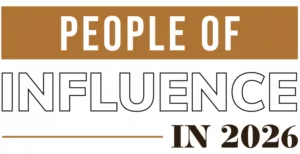Chamber to lead trip by health-care leaders
May Washington, D.C., trip will be second of the year, but will have single focus
The Spokane Regional Chamber of Commerce, known for its annual trips to Washington, D.C., that enables business leaders here to lobby on defense, agricultural, and other issues, will send a second delegation there this year to focus solely on health-care matters.
The organizations new health industry development group, which includes top administrators of hospitals, major clinics, other medical concerns, and companies, professional offices, and educational institutions, will spearhead the trip, Chamber President Rich Hadley says.
The delegation hopes to meet with the members of Congress from Washington, Idaho, and Montana who serve on health-care committees, Hadley says.
The trip is part of a heightened effort by the chamber to bolster the economy here by helping the health-care industry flourish, he says.
Hadley says the delegation will work on issues such as the adequacy of Medicare reimbursements here, medical malpractice, hospital regulation, funding for the planned new Intercollegiate College of Nursing building, and Spokane-area health-care research activities.
The trip probably will occur in the second week of June, just weeks after the chambers annual trip to Washington, D.C., during which business leaders will tackle a broad list of issues, Hadley says.
In the case of both trips, spadework done by Preston Gates & Ellis LLP, the chambers new Washington, D.C., lobbying firm, should be helpful, Hadley says.
The shift is we now have a federal lobbyist, Hadley says. Were more serious, more targeted; we know what were trying to get. Counting a retainer it pays to the firm and expenses the chamber covers, its cost to have a lobbyist there is about $9,000 a month, he says.
In addition to the trip, the chamber will hold a health-care conference in Spokane in mid-May at which it will:
Announce the results of a study of the economic impact of the health-care sector here. While much work has been done on that study already, the chamber wants comparisons to be added between the health-care sector here and those in three other communities that compete with Spokane, Hadley says.
Present a recap of an inventory of medical-industry education programs here. In essence, Hadley says, the inventory will be an evaluation of whether Spokane should be the site of a new medical school or an expansion of the University of Washington Medical School.
Hear a report from the Wye River Group on Healthcare, which is seeking the opinions of people here and in 10 other U.S. communities to find ways to address the nations health-care crisis.
Host a roundtable presentation by the Washington Health Policy Center on health-care policy at the state level.
In an interesting wrinkle, during its April trip the chamber is inviting 1,000 former Inland Northwest residents who now live in the Washington, D.C., area to a homecoming reception, Hadley says. The event is part of an effort to interest former residents in coming home, or otherwise being ambassadors for the Spokane area, Hadley says.
Related Articles



_web.webp?t=1764835652)
